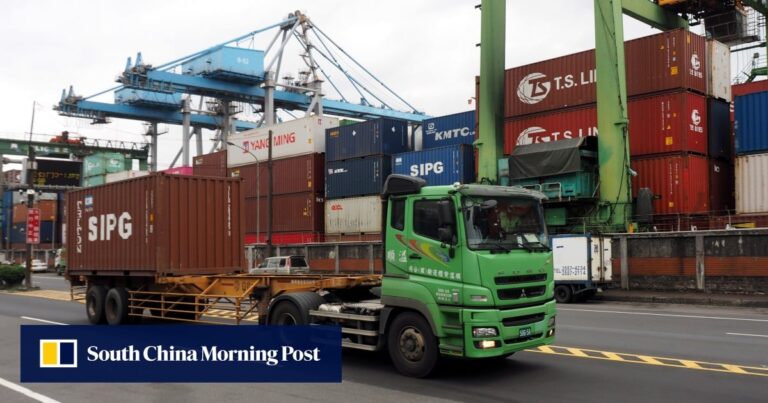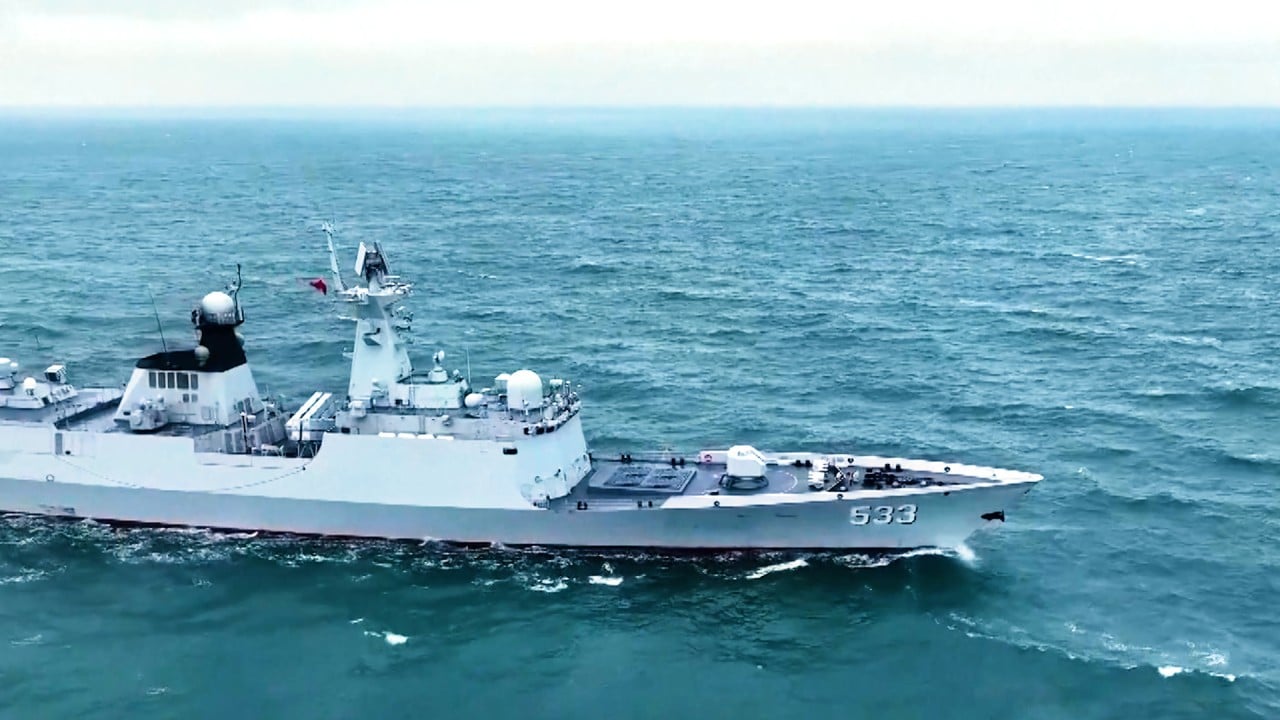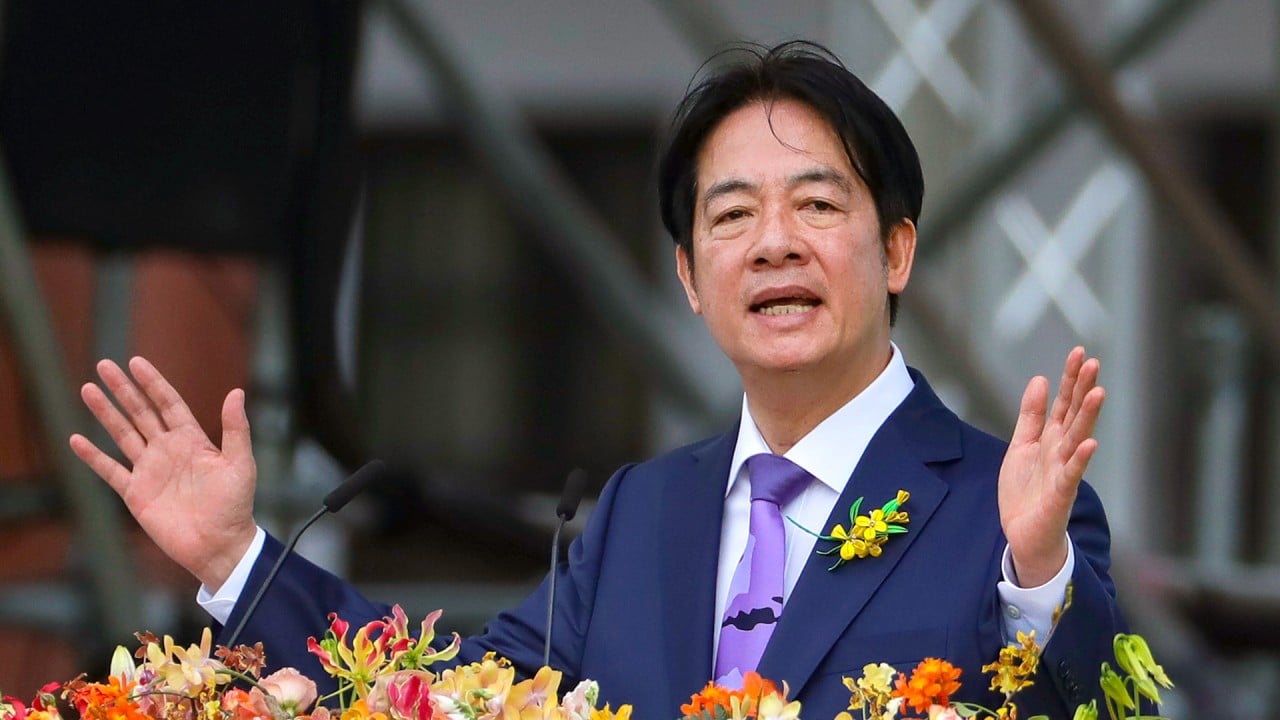“Taiwanese authorities have taken no steps to lift the trade restrictions.” [on mainland China products]”,” the statement said.
“Taiwan’s unilateral imposition of discriminatory restrictions and bans on the export of mainland Chinese products violates the provisions of the Cross-Strait Economic Cooperation Framework Agreement.”
The ECFA, signed in 2010, includes 806 items approved for tariff reductions and agreements to further liberalize trade. Of those, mainland China cut tariffs on 539 items from Taiwan that year.
China will keep the framework on hand as it is a useful tool.
Taiwan Affairs Office spokesman Chen Bin-hua said on Friday that Lai had incited conflict and economic decoupling, severely damaging the foundation for cross-strait consultations and the implementation of the ECFA.
“This is the core of why mainland China must halt further tariff cuts under ECFA,” he said.
Beijing’s Ministry of Commerce said Friday that Taiwan’s “long-standing and discriminatory” trade restrictions violate ECFA provisions that provide for the gradual reduction of trade barriers. It said Lai’s party has not taken any steps to ease those restrictions.
In Taipei, Premier Lai’s spokesman, Li Man, said the economic impact of the mainland’s “forced” suspension of preferential tariffs would be limited and urged mainland authorities to resolve the dispute at the World Trade Organization, of which both countries are members.
“The impact will be limited and the overall risk can be effectively controlled as the government has already grasped the situation and prepared a response,” Li said in a media statement, adding that dialogue with the WTO would help ensure “orderly and mutually beneficial cross-strait economic and trade relations”.
Beijing sees Taiwan as part of China and should be unified, by force if necessary. Most countries, including the United States, do not recognize Taiwan as an independent country, but Washington opposes any attempt to seize the self-ruled island by force and has pledged to supply it with weapons.
Chen Yifan, an assistant professor of foreign affairs and international relations at Taiwan’s Tamkang University, said the suspension of tariff cuts announced on Friday would deal a “blow” to Taiwanese factories and that Beijing may suspend tariff cuts on more items as it continues to investigate possible barriers on Taiwan’s side.
The end of preferential tariffs on Taiwan’s chemical products, from lubricants to vinyl acetate, a raw material for construction adhesives, will deal a further blow to an already struggling industry, said Leung Kuo-yuan, former director of the Taipei-based economic think tank Great Arctic Institute.
The 134 import items targeted by mainland China include dozens of chemicals and related items.
High-tech equipment is a linchpin of Taiwan’s economy and will be largely unaffected by the ECFA, but rubber, plastics and petrochemical products accounted for 7.8 percent of Taiwan’s global exports from January to April, totaling about $12.3 billion in the period, according to data from Taipei’s Ministry of Finance.
“The mainland China market is not small and cannot be ignored,” Liang said.
But Joanna Lei, a former lawmaker and chief executive officer of Taipei-based think tank China 21st Century, said Taiwan’s negotiators before 2010 had excluded from ECFA export items those mainly made up of small and medium-sized enterprises and large labor forces.
The suspension of ECFA will mostly hit larger companies, but they will ultimately be able to produce other products and absorb the hit, she said.
Chen said mainland Chinese authorities were unlikely to repeal the ECFA entirely, but could roll it back “little by little.”
“China will maintain this framework because it is a useful tool,” he said.
He added that mainland China would use the ECFA to respond to “unhelpful” changes in Taiwan’s politics.
Zhu Songling, a Taiwan issues expert at Beijing Union University, said the ECFA was concluded on the basis of mutual benefit and reciprocity, but the Democratic Progressive Party (DPP) did not recognise the 1992 consensus and imposed “discriminatory measures” on goods from mainland China, which “undermined the common ground”.
Zhu said the DPP authorities’ actions have “increasingly moved away from the one-China principle and advocated Taiwan independence” so “the basis for signing the ECFA no longer exists,” adding that Beijing is expected to take further steps in the future.
The 1992 Consensus – an informal agreement that there is one China but that both sides may disagree about what that means – was reached when Taiwan’s main opposition party, the Kuomintang, was in power.
Taiwan’s exports to mainland China totaled $93.7 billion last year and reached $30 billion in the first four months of this year, according to data from the Taiwan Bureau of International Trade. The United States is expected to overtake mainland China as Taiwan’s largest export market by the first quarter of 2024.
Additional reporting by Vanessa Cai in Shanghai



